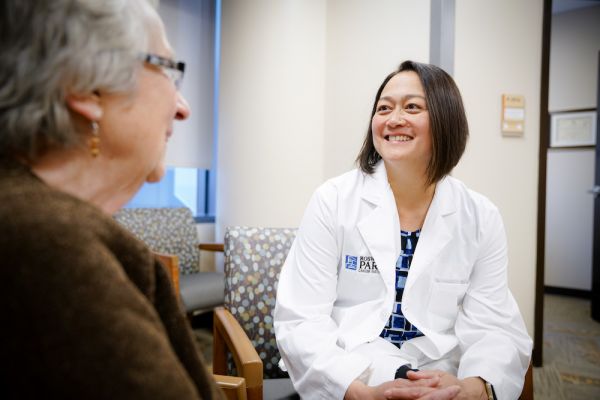How to cope with the worry that cancer could come back.
One of the most common fears cancer survivors have is that their disease will return. Worrying about your cancer coming back is normal. As time goes by, many survivors report that they think about their cancer less often. However, some events may cause you to worry still — even years after treatment. Perhaps you’re having symptoms like the ones you had when your cancer was diagnosed, or a family member’s illness brings you back. Other common triggers for increased worry include the anniversary of the day you were diagnosed and follow-up visits for your cancer surveillance.
- Be active in your health care. Keep your follow-up and surveillance appointments with your cancer care team as well as your primary physician. Make sure you get all the recommended cancer screenings for other cancers, too. Talk to your providers about any symptoms you’re having.
- Be informed. Learn about your cancer. Adopt healthy habits that can decrease your risk of recurrence. Learn about the support services available to you.
- Control what you can. Make positive changes in your lifestyle. Try not to dwell on your fears.
- Find ways to relax. Try yoga, meditation, Reiki and mindfulness to help with relaxation. Make the time for activities you usually enjoy — take a walk, read a book, spend time with a friend.
- Be active. Going out and doing something can help you focus on other things besides cancer and the worries that come along with it.
- Express your feelings. Expressing and sorting out your feelings can help you let go of some emotions such as fear, sadness and anger. Talk to friends, family members, a pastor/priest, or a counselor about what you are feeling. If you would rather not talk to someone, writing them down or journaling might help.
- Look for the positive. Try to focus your energy on wellness and what you can do to stay as healthy as possible.
- Be kind to yourself. Don’t blame yourself for your cancer and don’t be too hard on yourself because you fear cancer or the return of cancer.
If your fear and worry become extreme or prevent you from enjoying normal activities, talk to your provider — your oncologist, your primary care physician, or your Survivorship provider — for a referral to a psychologist or a counselor.
Support services for patients
Your cancer journey can be a difficult and overwhelming experience — we want you to know that we are here to help.
Learn More



